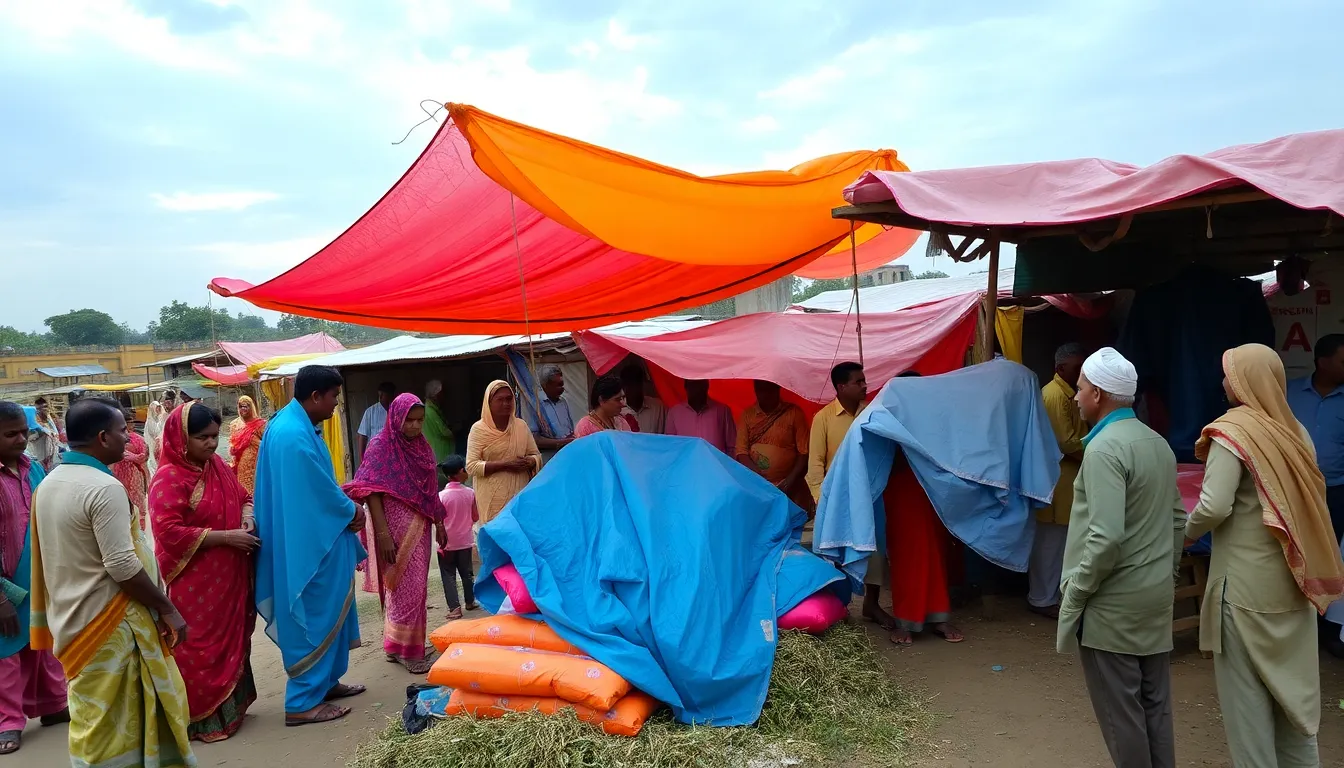In Banaskantha district, the rainy season has led to a significant increase in the sale of plastic tarpaulins. These tarpaulins are a blessing for poor families living in makeshift houses. Residents in low-lying areas often use plastic sheets to prevent rainwater from entering their homes. Farmers also rely on these tarpaulins to protect their livestock and fodder from the rain.
As the cost of traditional roofing materials like iron sheets and tiles rises, many families are turning to plastic tarpaulins. These tarpaulins are more affordable and provide a temporary solution for those who cannot afford repairs or replacements for their roofs.
Before the monsoon, many individuals would prepare their homes by hanging curtains to block the rain. However, those in poorer communities often find themselves at the mercy of the weather, with leaks in their roofs causing indoor flooding. To prevent such situations, some residents attempt to repair their roofs, while others replace damaged tiles. Yet, many cannot afford these repairs.
Instead, they opt for plastic tarpaulins, which are commonly referred to as plastic sheets, to cover their huts during the rainy season. This practice has become widespread, especially in rural areas where resources are limited.
In the past, thatched roofs were used, and preparations were made by installing proper roofing before the rains. However, traditional roof tiles are no longer available in the market, and iron and cement sheets have become too expensive for many families.
Farmers also utilize plastic tarpaulins to ensure their fodder remains dry during the rainy season. They place these tarpaulins over their fields to protect crops and prevent spoilage. Additionally, livestock owners cover their animal shelters with plastic sheets to keep the animals safe from rain.
As a result of this increased demand, plastic tarpaulin sales have surged during the monsoon season. Local vendors are seeing a rise in customers as families seek affordable ways to protect their homes and livelihoods from the heavy rains.
Despite the challenges posed by the rising costs of construction materials, the use of plastic tarpaulins offers a practical solution for many families in Banaskantha. This trend highlights the resilience of communities in adapting to their circumstances and finding innovative ways to cope with seasonal changes.
In conclusion, the rainy season in Banaskantha has brought a notable change in the market for plastic tarpaulins. As families seek cost-effective solutions for protecting their homes and livelihoods, the demand for these tarpaulins is likely to remain high. This situation underscores the importance of affordable materials in supporting vulnerable communities during challenging weather conditions.


Leave a Reply